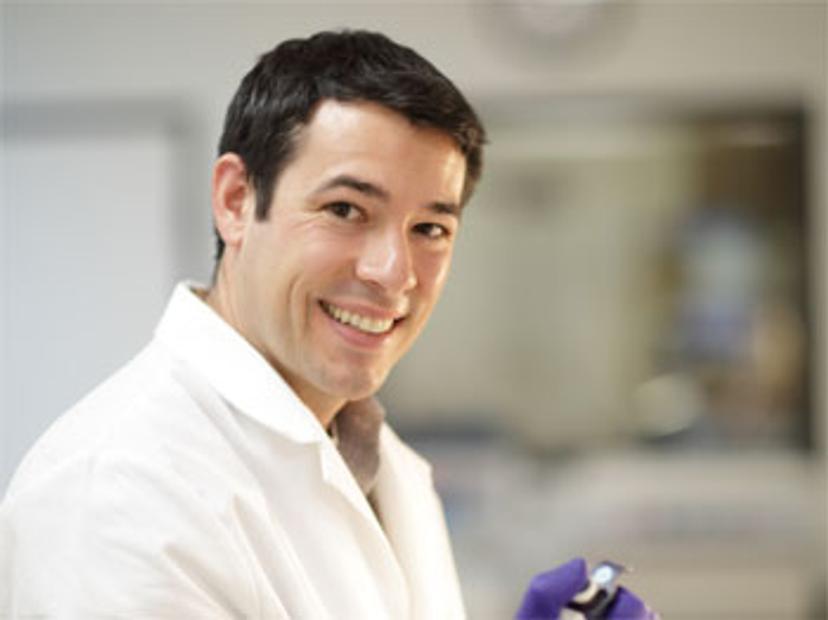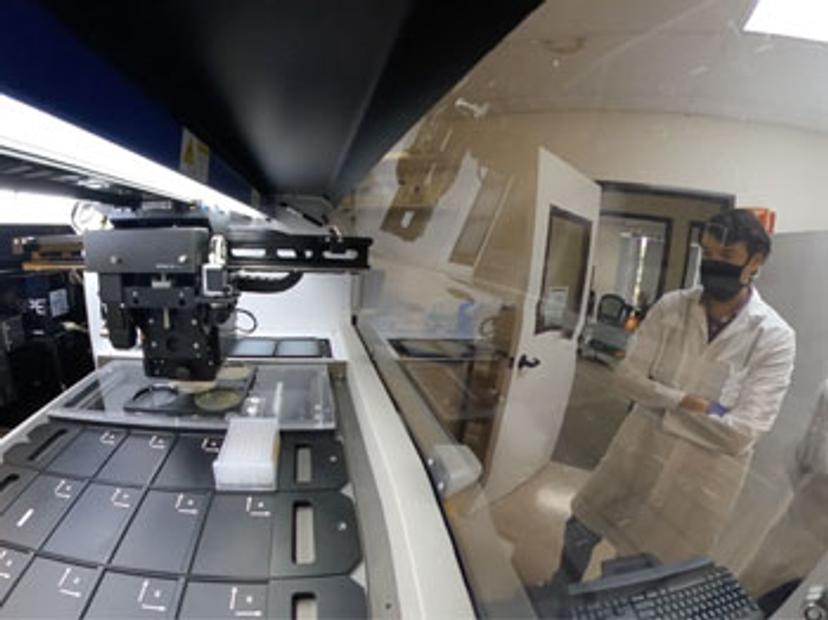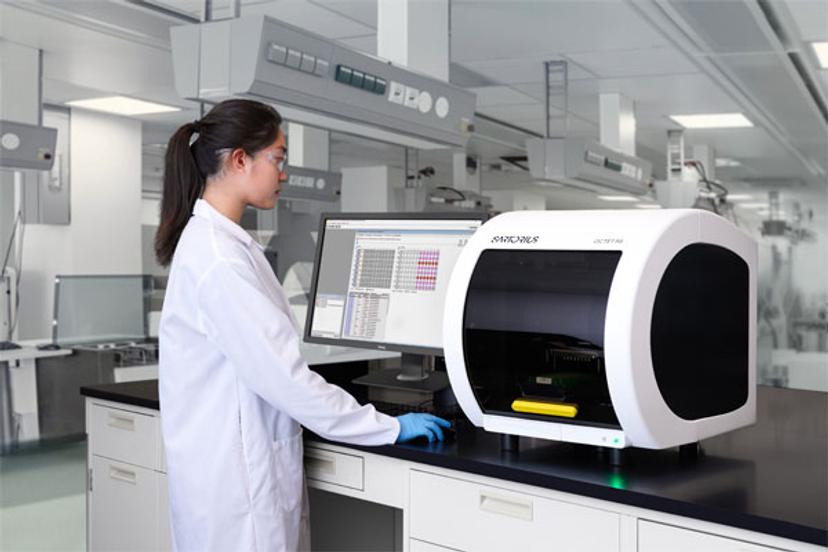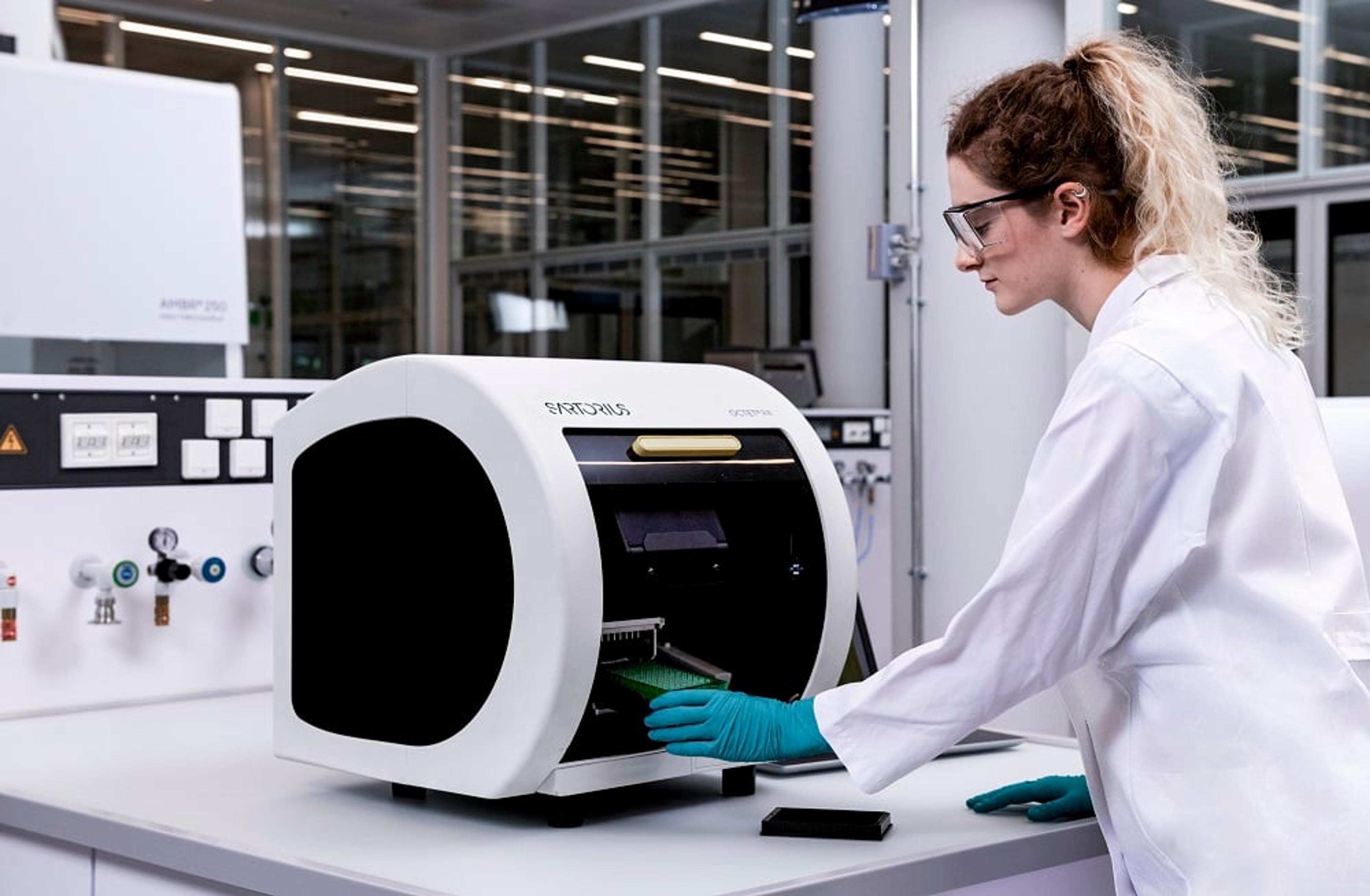Therapeutic antibodies: Advancing the development of COVID-19 neutralizing antibodies
We hear from Kevin Entzminger on how Abwiz Bio is developing next-gen antibody therapeutics to help answer fundamental questions in science
5 Nov 2021

The COVID-19 pandemic has driven the need for the development of novel therapeutics targeting the coronavirus. Understanding the infection pathway of SARS-CoV-2 and how the immune system responds to the viral infection is essential in developing effective therapeutics. Early in the pandemic, scientists at Abwiz Bio began developing a potent neutralizing antibody to help in the fight against COVID-19 and have since developed a range of neutralizing antibodies that show broad neutralization of all variants to date (alpha, beta, gamma, delta, kappa, and mu).
In this interview, we speak with Kevin Entzminger, Director of Antibody Discovery and Engineering at Abwiz Bio, to learn more about how virus-neutralizing antibodies have proven to be a key tool in the fight against SARS-CoV-2, the advantages of using Octet in this work, and why science communication and collaboration between researchers is so important.
What are the overall research goals at Abwiz Bio?
We aim to create next-generation antibody therapeutics. By combining our rabbit antibody discovery and antibody engineering platforms, we can identify very potent antibodies against unique targets. We also use this technology to develop diagnostic and research reagent antibodies and are always looking to advance basic scientific research through collaborations.
Why is science communication and collaboration so important?

As a small startup company, our heart lies with discovering antibodies to help study fundamental questions in science. We’ve found that our collaborations are always mutually beneficial - researchers bring their deep knowledge about individual targets or diseases, while we can quickly create potent antibody tools for use in further studies or therapeutic development.
What impacts are you hoping to achieve with your work?
We have solved some persistent problems in the rabbit antibody discovery space that allows us to use phage display for selection where others have failed in the past. By unlocking rabbit phage display, we hope to provide a whole new set of antibodies against difficult targets that have remained recalcitrant until now. We’re having a lot of success with GPCR and membrane protein targets, for example, even using native cell antigens for panning.
Tell us about your work developing COVID-19 neutralizing antibodies
Early in the pandemic, we knew we could develop a potent neutralizing antibody, though with our limited resources we knew we wouldn’t be the first. We immunized rabbits with RBD and found a very strong neutralizing antibody against the wild-type spike protein trimer. After humanization, this clone retained good activity but showed reduced efficacy against beta and gamma variants. We then used our STEM™ (stage-enhanced maturation) platform to iteratively select for stronger binders to the beta, gamma, and delta variants. Our top neutralizing antibodies are showing broad neutralization of all variants to date (alpha, beta, gamma, delta, kappa, and mu) and outperform all existing therapeutic antibodies.
How did you use the Octet in this work?
The Octet was crucial to validate how our affinity maturation platform was working. We could correlate our surrogate virus neutralization ELISA assay results with the affinity improvements that we were seeing. One of the great benefits of the Octet is the throughput and the ability to work with crude samples. Compared to a traditional four-channel SPR chip, I can simultaneously test eight sensors using our RED96e. I can get results quickly, and with 96 sensor trays, I’m comfortable troubleshooting and optimizing capture conditions even if I need to use many sensors. I’ve also found it pretty robust to screening even crude bacterial Fab supernatant, which I’ve had difficulty testing elsewhere.

What do you see for the future of your work at Abwiz Bio?
I’m very excited about our future at Abwiz Bio! Our COVID-19 neutralizing antibodies were our first in-house validation from antibody discovery to humanization and affinity maturation/optimization. We already knew how to create antibodies against difficult targets like GPCRs and ion channels. Now that we have a ‘target-to-clinic’ platform, we’re confident we can get great antibodies for therapeutic applications. We’re looking to pair this with mRNA delivery, which would completely revolutionize the antibody therapeutic space.
Find more news and resources in our Virology & Infectious Diseases Special Feature >>
To learn more about Abwiz Bio’s work, visit the website here >>

